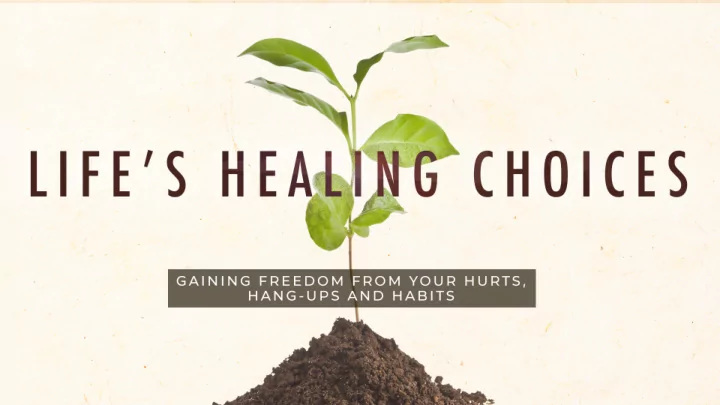

Choice 4: The Housecleaning Choice Openly examine and confess my faults to myself, to God, and to someone I trust.
$#@& !
Sin: going in the wrong direction
Sin: going in the wrong direction Confession: telling your story
The Housecleaning Choice Openly examine myself (self-awareness) and share—with myself, God, and someone I trust — the story of where I’ve gone in the wrong direction.
“Blessed is the one whose transgressions are forgiven, whose sins are covered. Blessed is the one whose sin the Lord does not count against them and in whose spirit is no deceit.” Psalm 32:1–2
“When I kept silent, my bones wasted away through my groaning all day long. For day and night your hand was heavy on me; my strength was sapped as in the heat of summer.” Psalm 32:3–4
“Then I acknowledged my sin to you and did not cover up my iniquity. I said, ‘I will confess my transgressions to the Lord.’ And you forgave the guilt of my sin.” Psalm 32:5
“Therefore let all the faithful pray to you while you may be found; surely the rising of the mighty waters will not reach them. You are my hiding place; you will protect me from trouble and surround me with songs of deliverance.” Psalm 32:6–7
The Three Dangerous Consequences of Shame • Shame destroys our confidence. • Shame damages relationships. • Shame keeps us stuck in the past.
“Don’t let who you were talk you out of who you’re becoming.” Bob Goff
“Shame can’t survive being spoken about. It doesn’t survive in the light of day.” Brene Brown
Step 1: Take a personal moral inventory
Step 1: Take a personal moral inventory • Create some alone time without interruptions. • Open yourself to letting God reveal what you need to see. • Rely on God’s grace to let you know that nothing you uncover is outside His forgiveness. • Be honest with yourself. • Identify in writing both the good and bad choices you’ve made.
Step 2: Accept responsibility • Don’t rationalize. • Don’t minimize. • Don’t blame others.
Step 3: Ask God’s forgiveness
The Five Languages of Apology • Expressing Regret • Taking Responsibility • Making Restitution • Genuine Repentance • Requesting Forgiveness
Step 4: Share with another person
Share with someone: • safe and who has earned your trust over time. • who understands the value of what you are doing. • who can emotionally bear the weight of your story. • mature enough not to be shocked, minimize or try to one-up you. • who responds with empathy ( I’m with you ) not sympathy ( I feel sorry for you ). • who knows Jesus well enough to reflect His forgiveness to you.
What do you say? “I need to share some ways (or a way) I’ve been going in the wrong direction in my life and I need someone I trust who will listen and speak love into my life.”
Step 5: Accept God’s forgiveness and forgive yourself God’s forgiveness is: • instantaneous. • free. • complete. • only conditional upon you seeking it and being willing to receive it.
Recommend
More recommend